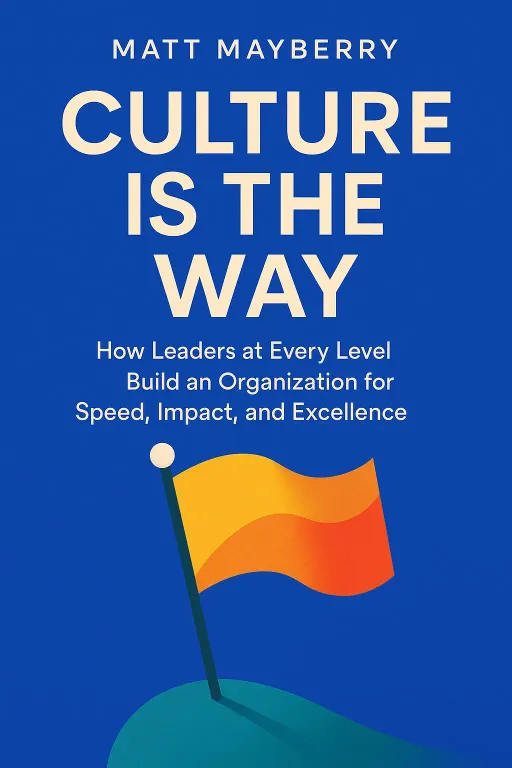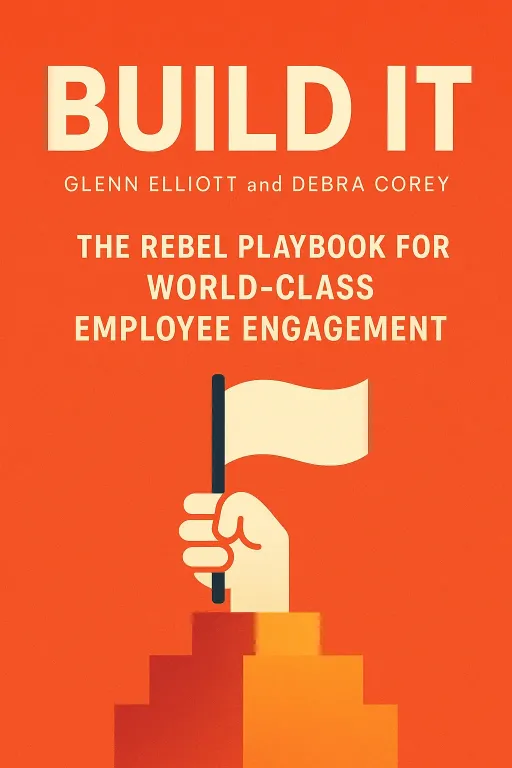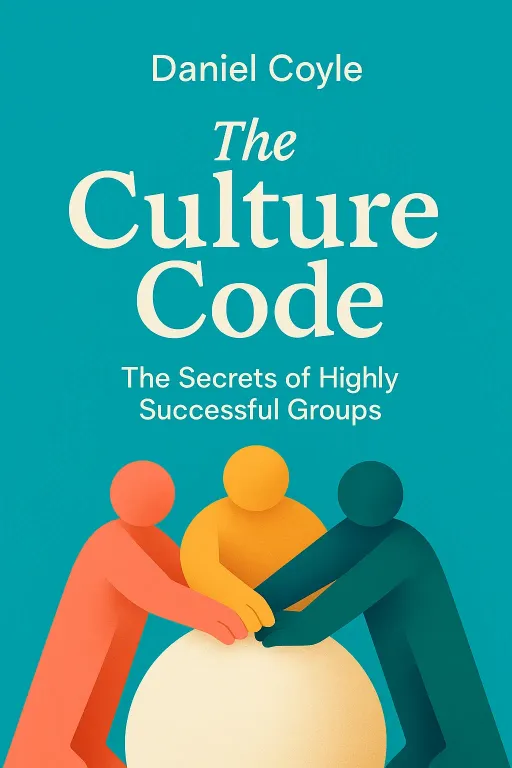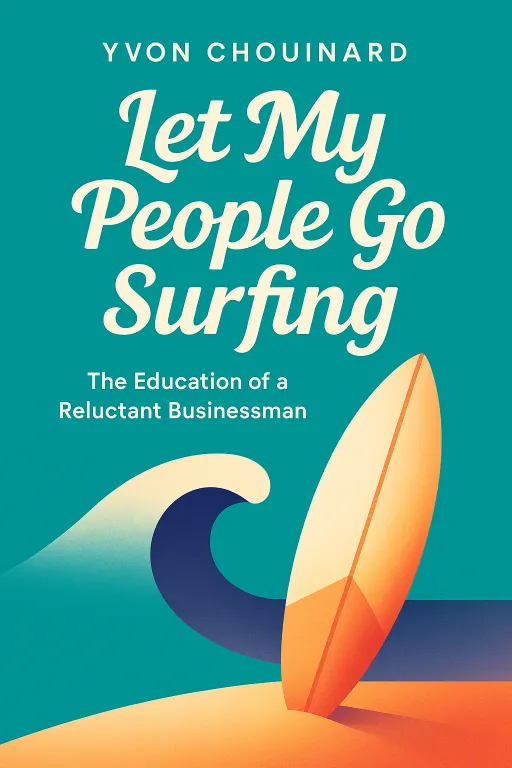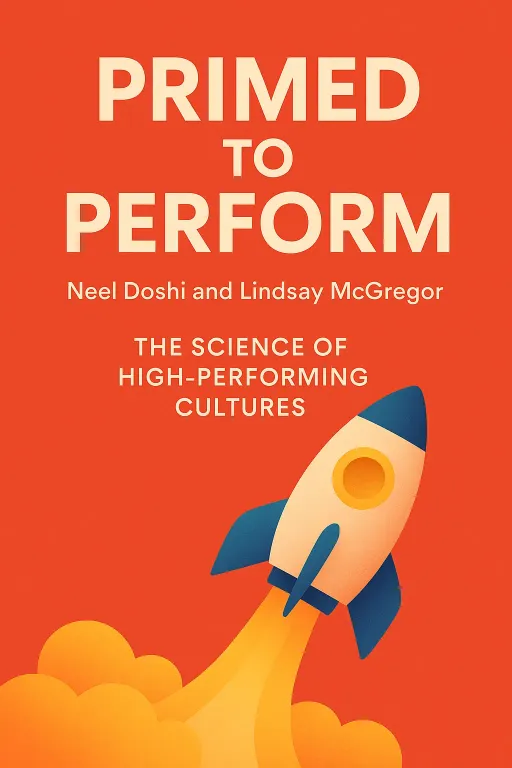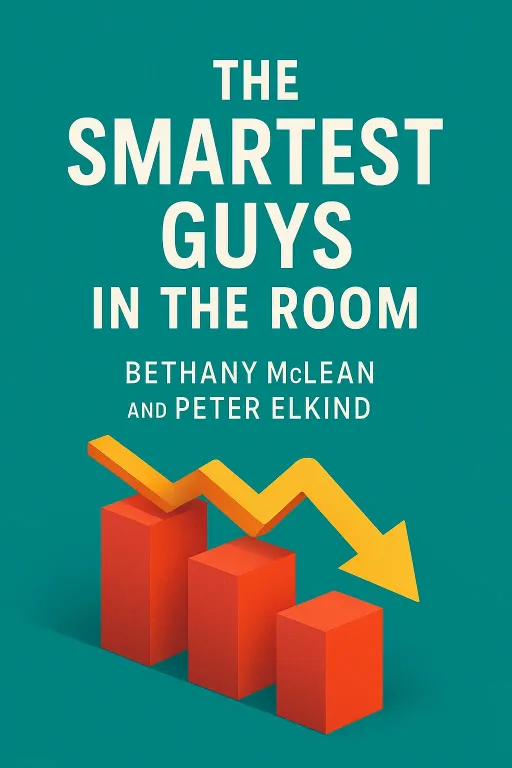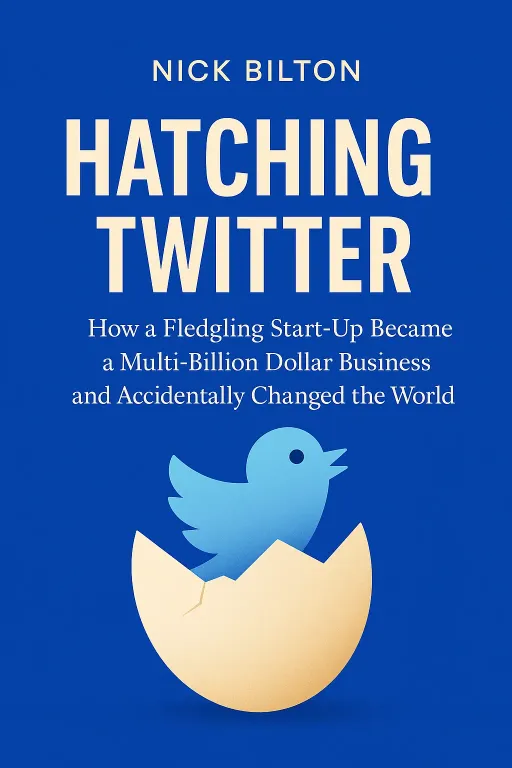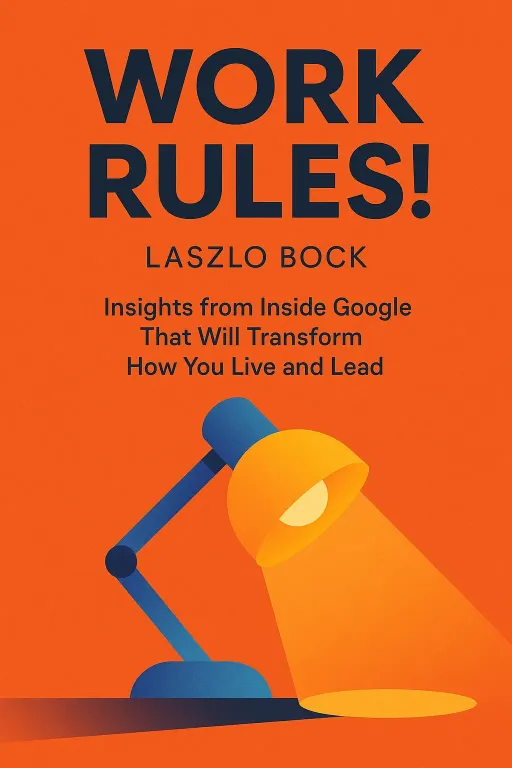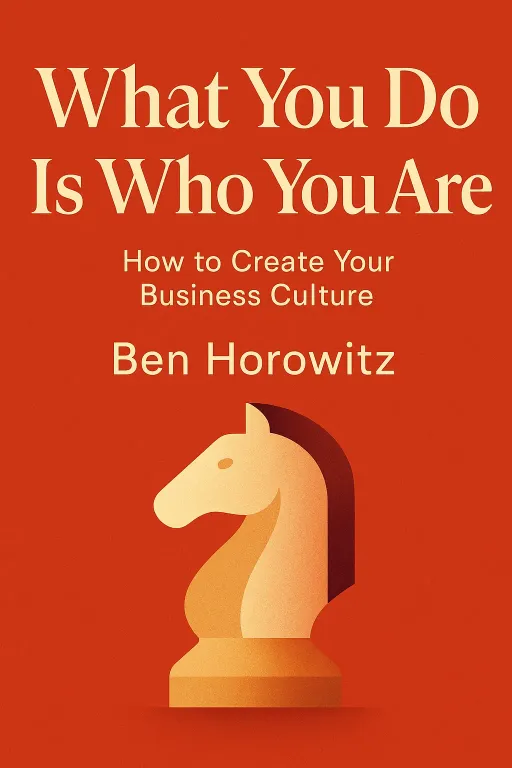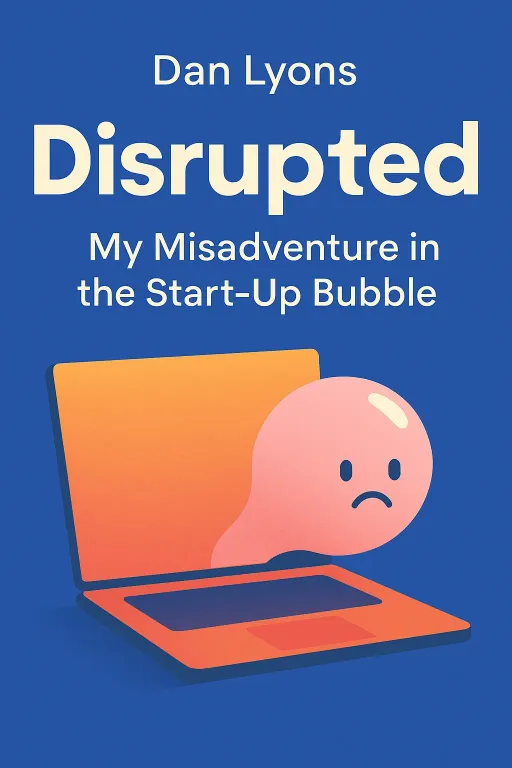
Beyond the Ping-Pong Table
13 minGolden Hook & Introduction
SECTION
Michelle: Most people think startup perks like free beer and ping-pong tables are a sign of a great company culture. Today, we’re going to explore a book that argues those perks are actually a warning sign—a candy-coated distraction from a digital sweatshop. Mark: I love that framing. Because we’ve all seen the photos from Silicon Valley offices—the nap pods, the gourmet chefs, the endless snacks. It looks like adult summer camp. But what if that’s just the marketing for a much less glamorous reality? Michelle: Exactly. And we're diving into a book that absolutely blew the lid off this world: Disrupted: My Misadventure in the Start-Up Bubble by Dan Lyons. Mark: Right, and Lyons wasn't some wide-eyed kid. He was a seasoned tech journalist for outlets like Newsweek. He gets laid off in his fifties and decides to join a booming startup, HubSpot, thinking he's jumping into the future. It turns out to be a very different kind of future. Michelle: And that outsider-insider perspective is what makes the book so explosive. It became this huge, controversial bestseller because it confirmed what many suspected but few said so bluntly. It really resonated with readers, especially those who felt alienated by modern corporate culture. Let's start with his first day on the job, which is a perfect entry into this bizarre new world.
The 'Happy!! Awesome!! Start-Up Cult': A Fish Out of Water
SECTION
Michelle: So Lyons shows up for his first day at HubSpot, a company at the time valued at over a billion dollars, and... nobody knows he's coming. Mark: You're kidding. They just forgot they hired him? Michelle: Pretty much. The receptionist can't find his name in the system. The two executives who hired him are conveniently out of the office. He's just left sitting on a bright orange couch, looking at the walls, which are covered in what he calls "start-up gibberish." Mark: What kind of gibberish are we talking about? Michelle: Things like chalkboards with "HubSpot = cool" scrawled on them. The whole office is drenched in the company color, orange. There's a massive candy wall, a game room with foosball and video games, and even a nap room. It’s a full-on sensory assault of forced fun. Mark: That sounds less like a tech unicorn and more like a Chuck E. Cheese for adults. But I have to ask about the most legendary story from this book. The teddy bear. Please tell me the teddy bear story is true. Michelle: Oh, it's true. The co-founder and CTO, Dharmesh Shah, had this management "innovation." He started bringing a teddy bear named Molly to meetings. Molly would sit in a chair, and her purpose was to represent the customer. So, during a debate, someone could say, "What would Molly think?" Mark: Hold on. A teddy bear? In a real, billion-dollar business meeting? Was this a joke, or did people actually take it seriously? Michelle: They took it deadly seriously. Lyons describes how everyone just went along with it. No one laughed. No one even raised an eyebrow. It was presented as this brilliant, empathetic management technique. And this is part of what Lyons calls the "Happy!! Awesome!! Start-Up Cult." There's this whole internal language, which he dubs "HubSpeak." Mark: HubSpeak? Like what? Michelle: Well, for one, you don't get fired at HubSpot. You "graduate." Mark: Oh, come on. Graduation? That is next-level corporate gaslighting. "Congratulations on your involuntary graduation, Derek! We wish you well in your future endeavors, which will not be here." Michelle: That's almost exactly what the emails said! They'd announce someone had "graduated" and would be "using their superpowers in their next adventure." And then their desk would be empty, and no one would speak of them again. It’s this relentless, enforced positivity that papers over everything. Mark: Okay, so is this just quirky startup stuff, or is there something more manipulative going on? Is this 'fun' culture designed to make young employees accept lower pay and longer hours? Michelle: That's the central question Lyons poses. He argues that this cult-like atmosphere, with its special language and bizarre rituals, is a powerful tool for control. It fosters groupthink and makes it hard to criticize anything. If you're not "HubSpotty"—which is a real term they used—if you're not perpetually enthusiastic, you're seen as a problem. It's especially effective on a workforce that's, on average, 26 years old and doesn't have much other professional experience to compare it to. Mark: So the candy wall and the teddy bear are basically a distraction. They keep everyone focused on the "awesome" culture so they don't notice the more problematic aspects of the business. Michelle: Precisely. And those problematic aspects get very dark, very quickly. It's not just about weird meetings; it's about how the company fundamentally views its employees.
The New Work: Employees as Disposable Widgets
SECTION
Michelle: And that idea of manipulation gets much darker when you look past the teddy bears and see how employees are actually treated. Lyons calls it 'The New Work,' where people are just disposable widgets. Mark: That’s a pretty bleak term. What does he mean by that? Michelle: He means the old social contract between an employer and an employee—loyalty in exchange for job security—is completely gone. In its place is this idea, popularized by Netflix and adopted by HubSpot, that "we're a team, not a family." Mark: I've heard that one before. It sounds good on paper, like you're a pro sports team. But in reality, it means you can be cut from the team at any moment for any reason. Michelle: Exactly. And Lyons provides these heartbreaking, concrete examples. He tells the story of three experienced women in their mid-thirties. One, named Isabel, is fired shortly after returning from medical leave. Another, Denise, is told her job no longer exists, even as her department is hiring. And the third, Paige, is fired just weeks before her stock options are set to vest. Mark: Wow. That's brutal. It feels like the 'team, not a family' mantra taken to a heartless extreme. But again, I have to ask the skeptical question: how do we know this isn't just Lyons cherry-picking the worst stories? HubSpot was a fast-growing company; turnover happens. Michelle: That's a fair point, and it's something critics of the book have mentioned. But Lyons argues it's part of a systemic pattern, not just isolated incidents. He connects it to his own experience of feeling like a "Beached White Male"—an older, experienced worker suddenly adrift in an economy that prizes youth above all. He sees ageism everywhere at HubSpot. Mark: He was in his fifties when he joined, right? That must have been a huge culture shock. Michelle: A massive one. He describes being called "Grandpa Buzz" by younger colleagues. The PR team even pitched a publicity stunt called "Old Dog, New Tricks" starring him. He felt like a token, an oddity. And he argues that the obsession with "culture fit" in tech is often just a code word for age and a lack of diversity. It's young, white, male managers hiring more young, white, male employees who think and act just like them. Mark: It’s self-perpetuating. And it makes you re-evaluate all those "perks." Like the "unlimited vacation" policy. Michelle: Yes! He points out that on the surface, unlimited vacation sounds amazing. But in reality, it means the company doesn't have to pay out accrued vacation time when an employee "graduates." And because of the high-pressure environment, most people are afraid to take much time off anyway, for fear of falling behind or looking like they're not a team player. Mark: So the perk is actually a cost-saving measure for the company. It's all starting to sound less like a fun workplace and more like a finely tuned machine for extracting value from its employees before disposing of them. Michelle: That's exactly his argument. The whole system is designed to burn through young, cheap labor. They're brought in, indoctrinated into the cult, worked to the bone in a high-pressure sales environment he calls "the boiler room," and then "graduated" when they burn out or are no longer needed. Mark: So you have this weird, cult-like culture on one hand, and this ruthless, disposable workforce model on the other. It sounds like a house of cards. How was this company even successful? Michelle: Ah, that's the billion-dollar question, and it takes us to the heart of the tech bubble itself.
The Bubble and the Cover-Up
SECTION
Michelle: The answer to how HubSpot succeeded, despite its chaotic culture and questionable labor practices, is that in the tech bubble, the normal rules of business don't always apply. Lyons describes the prevailing model as "Go public or go broke." Mark: Meaning, the goal isn't necessarily to build a profitable, sustainable company, but to grow revenue fast enough to have a successful IPO and let the early investors and founders cash out. Michelle: Precisely. And when HubSpot finally filed to go public, its financial documents revealed some startling things. In the years leading up to the IPO, its losses were actually growing faster than its revenue. It was burning through cash at an alarming rate. Mark: So it was a money-losing operation. How does a company like that get valued at over a billion dollars? Michelle: Hype. And a good story for investors. As long as the revenue growth chart goes up and to the right, venture capitalists are willing to pour money in. Lyons also introduces a concept from the early days of Apple called the "Bozo Explosion." Mark: The Bozo Explosion? I'm almost afraid to ask. Michelle: It's the idea that A-players hire other A-players, but B-players hire C-players, and C-players hire D-players, so they can feel superior. Soon, the whole organization is filled with "bozos." Lyons argues this happened at HubSpot, where inexperienced managers were promoted quickly, leading to a culture of incompetence masked by enthusiasm and jargon. Mark: That explains so much. The teddy bear, the 'graduations,' the fact that no one knew he was coming on his first day. It wasn't a sophisticated, manipulative plan; it was just... chaos run by people who didn't know what they were doing. Michelle: A combination of both, perhaps. But the story doesn't end there. It takes a turn that sounds like it's straight out of a thriller. Mark: Okay, if the book exposed all this, how did HubSpot react? This is the part that generated so much controversy, right? Michelle: This is where it gets wild. In the epilogue, Lyons details what happened after he submitted his manuscript. HubSpot's Chief Marketing Officer—the one Lyons calls "Cranium"—was fired. Another VP, who Lyons calls "Trotsky," resigned. The reason given by HubSpot? They had engaged in "really aggressive tactics" and "unethical" actions in an attempt to obtain a copy of the book manuscript before it was published. Mark: Wait, they tried to steal the manuscript? Like, corporate espionage? Michelle: The details are murky because HubSpot was very tight-lipped, but the implication was that it was something serious enough to warrant firings and even the involvement of the FBI. The company's attempts to handle the crisis were a disaster. They stonewalled reporters and tried to control the narrative, which only made them look more guilty. Mark: Wow. That's unbelievable. It almost proves Lyons's entire point about the company's ethical vacuum. If you're willing to go to those lengths to suppress a book, what else are you willing to do? Michelle: It's the ultimate validation of his critique. The very culture of hype, secrecy, and questionable ethics that he described in the book played out in real-time in their reaction to it. It showed that the "Happy!! Awesome!! Start-Up Cult" had a very, very dark side.
Synthesis & Takeaways
SECTION
Michelle: When you piece it all together, the book paints a really coherent and disturbing picture. It starts with a fun, quirky culture, but that culture serves a darker purpose: to manage a disposable workforce within a financially unstable 'bubble' economy. Mark: The whole thing is a system. The perks and the cult-like atmosphere make the high-pressure, low-security jobs palatable for young employees. And that churn-and-burn labor model allows the company to show massive revenue growth, even if it's losing money, which is all that matters for the IPO. Michelle: Exactly. And the book is a powerful warning that when hype replaces substance, and when growth is pursued at all costs, the ethical lines get blurry very, very fast. What starts with a teddy bear in a meeting can end with alleged criminal activity to suppress criticism. Mark: It makes you wonder, how many other 'fun' workplaces are operating on this same model? What's the real price of that free lunch or that office ping-pong table? Michelle: A great question for all of us to think about. The book is a few years old now, but its themes of ageism, job precarity, and the dark side of corporate culture feel more relevant than ever. Mark: It’s a powerful reminder to look past the surface. We'd love to hear your own 'Disrupted' stories. Have you ever worked in a place like this? Let us know on our social channels. Michelle: We’d genuinely love to hear them. This is Aibrary, signing off.
